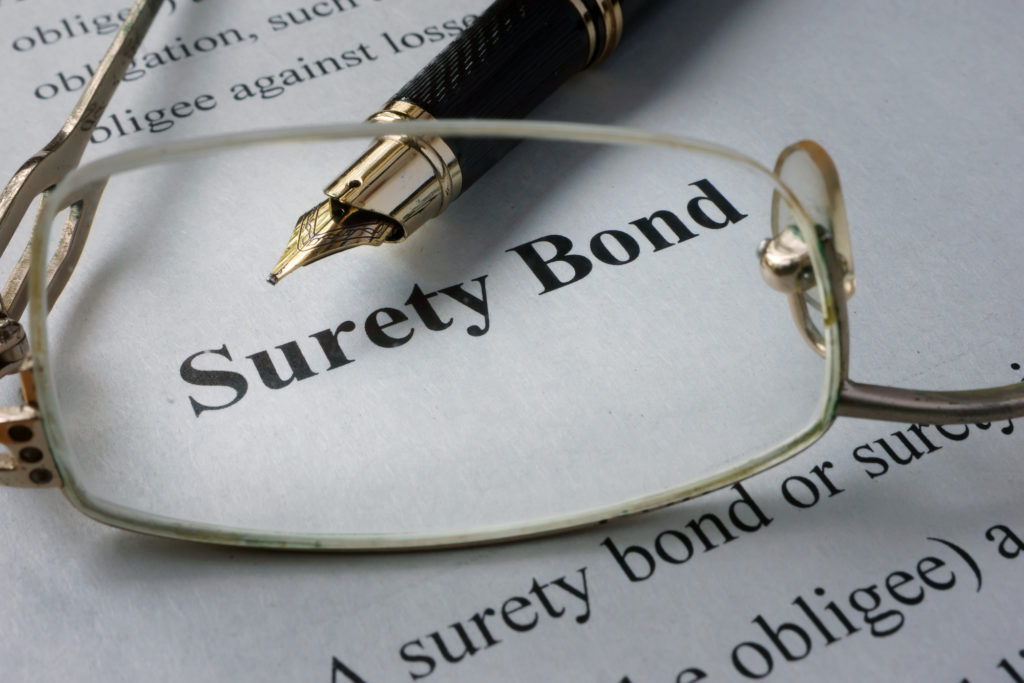
Is Surety Bonds Insurance?
No surety bond is a guarantee that someone (the principle) will perform something (the obligation) or the surety company will pay a stated amount. It is not insurance.
Who is the Principle?
The principle is a person or company that are required to perform the action.
What is the Obligation?
It is an action that are required of the principle. This action commonly are:
- Performance: complete a project
- Payment: properly pay subcontractors and suppliers
- Bid: Honor their bid.
What are Conditions in Surety Bonds?
Most bonds have the condition that if the obligation is completed the bond is voided. If not the bond stays in effect. Overall conditions are things that need to be done.
What happens if the obligation is not finished?
Both the principal and the surety company may be sued, jointly or individually. The amount of the bond is the penal amount. This is usually the maximum about payable upon being sued.
When are Surety Bonds Required?
Surety bonds are commonly used in contracts for public construction and other construction jobs over $100,000. It is also used by auto dealers to sell permits and acquire files on vehicles.
Is Surety Bond Required in California?
California requires license and permit surety bonds in order to acquire licenses/permits for various professions such as a California auto dealer, a contractor’s license bond, a seller of travel surety bond or an RV dealer bond.
Commonly known as Surety Bond California or California Surety Bond
What is a Bid Bond?
A bid bond guarantees the owner that the principal will honor its bid and will sign all contract documents if awarded the contract.
What happens if a Principal defaults on a Bid Bond?
The principal and the surety are liable for the difference between their low bid and the next bid. There is usually a 10% to 20% penalty also added.
What is a Performance Bond?
A performance bond guarantees the owner that the principal will complete the contract according to its terms including price and time.
What happens if a Principal defaults on a Performance Bond?
The owner of the Bond (the Obligator) can sue the principal and the surety for the cost of completing the Obligation. This is usually handled one of three ways.
- The Surety takes up the contract. They would be using a completion contractor.
- Finding a new contractor to contract directly with the owner.
- Having the owner complete the contract with the surety paying the costs.
The penal sum is usually the amount of the Prime Construction Contract. This is often changed when change orders occur. If the surety chooses to do the work itself with a completing contractor to take up the contract then the penal sum may not be the limit of its liability. The surety may assume the same risk as a contractor in completing the contract.
What is a Payment Bond?
A payment bond guarantees the owner of the bond that subcontractors and suppliers will be paid the monies that they are due from the principal.
What happens if the Principal defaults on the Payment Bond?
The owner of the bond is the obligee; the beneficiaries of the bond are the subcontractors and suppliers. Both the obligee and the beneficiaries may sue on the bond. The penal sum is enough to cover subcontractors and suppliers.
What is the benefit to the principal of a payment bond?
The bond owner is indirectly benefited with assurance that the subcontractors and suppliers will be paid. This means the beneficiaries will continue work on the project. The suppliers and subcontractors benefit from not needing to issue Mechanics liens on the project. The beneficiaries can sue the surety directly for their amounts. The total penal amount is usually less than the entire contract costs.
